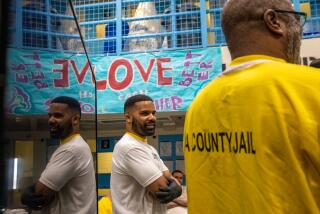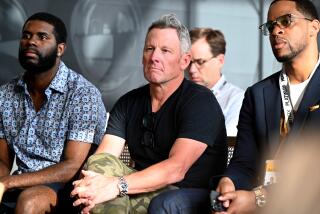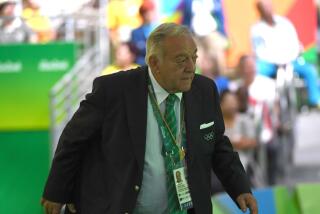Lance Armstrong does not impress anti-doping agency executives
- Share via
Lance Armstrong did little to impress executives at two of the world’s largest anti-doping agencies during the first part of his interview with Oprah Winfrey on Thursday night.
Armstrong was hardly contrite when giving most of his answers to Winfrey, who opened the interview with a series of yes-or-no questions that led to the disgraced former cycling champion and cancer survivor admitting that he had used performance-enhancing drugs, lied about it when confronted by others and often bullied his accusers.
“Lance Armstrong finally acknowledged that his cycling career was built on a powerful combination of doping and deceit,” Travis Tygart, chief executive of the U.S. Anti-Doping Agency, said in a statement.
“His admission that he doped throughout his career is a small step in the right direction. But if he is sincere in his desire to correct his past mistakes, he will testify under oath about the full extent of his doping activities.”
PHOTOS: Lance Armstrong through the years
It was the USADA that brought forth an extensive report that detailed Armstrong’s systematic doping. The result of that investigation left Armstrong stripped of his unprecedented seven Tour de France titles and banned from elite competition for the rest of his life.
John Fahey, president of the World Anti-Doping Agency, was more frank when addressing Armstrong’s statement that at the time he didn’t think participating in a doping program was cheating because most cyclists were dirty.
“He was wrong, he cheated and there was no excuse for what he did,” Fahey told the Associated Press. “If he was looking for redemption, he didn’t succeed in getting that. My feeling after watching the interview is that he indicated that he probably would not have gotten caught if he hadn’t returned to the sport.”
PHOTOS: Sports scandals, present and past
Armstrong denied he took part in what the USADA called “the most sophisticated, professionalized and successful doping program that sport has ever seen,” pointing to the East German doping program of the 1970s and ‘80s. He also denied using performance-enhancing drugs after winning his last Tour de France in 2005.
“The evidence from USADA is that Armstrong’s blood tests show variations in his blood that show with absolute certainty he was doping after 2005,” Fahey said. “Believe USADA or believe Armstrong? I know who to believe.”
Armstrong is now open to a bevy of civil lawsuits from those he has defamed and sponsors he deceived, but he most likely will not face any criminal charges.
He has been called upon by both doping agencies to testify under oath. It is the only way he can be considered for reinstatement into sanctioned competition such as triathlons and mountain bike racing, in which he competed after retiring from road racing.
“If he’s serious about wanting to redeem himself, he only had one course of action that he could have taken, and that is to go before an appropriate tribunal under oath, and give evidence that subjected him to cross-examination, where he would have to name names, tell of the officials, the entourage, who supplied the drugs, when, where, and which riders were associated,” Fahey said.
ALSO:
Watch Manti Te’o speak about fake girlfriend
Ryan Leaf kicked out of rehab house, sent to prison
Kobe, Howard, Paul and Griffin selected to NBA All-Star team
More to Read
Go beyond the scoreboard
Get the latest on L.A.'s teams in the daily Sports Report newsletter.
You may occasionally receive promotional content from the Los Angeles Times.











